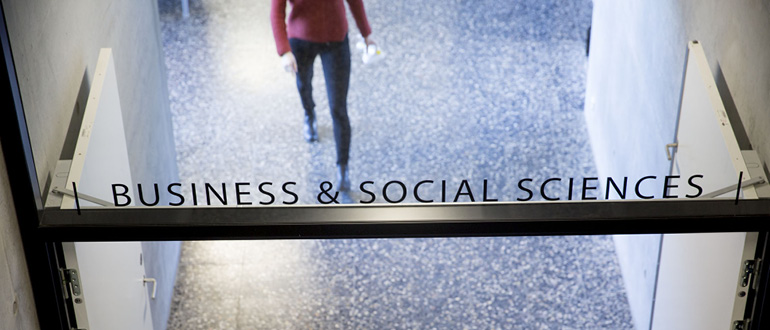
SDU Research on Responsibility to Protect at the Danish Foreign Ministry
Martin Mennecke, Associate Professor at the Department of Law, SDU, presented at the Danish Foreign Ministry a research report on how Denmark better can integrate the UN norm “responsibility to protect” into Danish foreign policy.
Denmark seeks to promote the prevention of grave human rights violations. It is cheaper and better for everyone, if prevention works. This is something of a commonplace – but it is difficult to implement in practice. The Danish Foreign Ministry asked Martin Mennecke to look into how Denmark could improve its implementation of “responsibility to protect” (short R2P) in regard to development cooperation and human rights.
The background for this is an unanimous decision in 2005 by the heads of states of all UN member states at the UN World Summit to agree on a responsibility to protect their populations against genocide, crimes against humanity, war crimes and ethnic cleansing. This norm was coined “responsibility to protect.” It could subsequently not prevent the massive atrocities that are being committed in Syria, South Sudan or North Korea – but the norm has helped to engage the international society in other human rights crises such as Burundi or Guinea which otherwise might have been overlooked.
Denmark has for several years been one of the leading proponents of R2P. In 2014, the Danish Foreign Ministry asked SDU expert Martin Mennecke for an assessment of how the practical implementation of R2P could be improved. In this context, Mennecke organised a series of meetings with other R2P experts, including officials from the US government, the Office of the UN’s Special Adviser on R2P and the European External Action Service. After additional meetings with Danish diplomats both at the Foreign Ministry and Danish embassies, including in Ghana, Uganda and at the United Nations, Mennecke finalised a draft report with recommendations for how the Danish implementation of R2P could be strengthened.
As a next step, the draft will be discussed at a number of internal meetings and then, in a final version, presented at a public seminar in Copenhagen. Mennecke views his cooperation with the Ministry as mutually beneficial:
“It has been very exciting to see from the inside how the Foreign Ministry works with R2P. I have learnt a lot about the difference between a UN norm and the political realities on the ground. This facilitates a more nuanced understanding of R2P which helps me in turn to better explain the significance of R2P to my students. In addition, I have gained a number of new contacts who enrich my research and who I can introduce to my students in regard to internship opportunities. At the same time, it is very satisfying to see how our research can be used in practice – in that sense, SDU takes part in implementing R2P.”
The R2P research report will eventually be turned into a peer review publication.